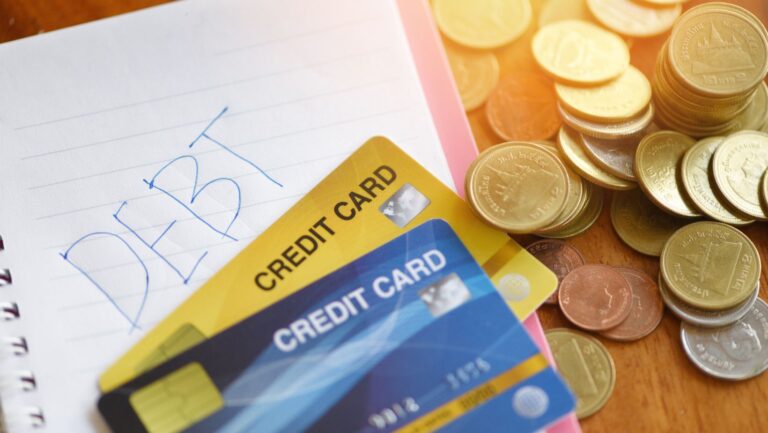When it comes to managing credit responsibly, the first thing most people think of is paying bills on time. And they’re absolutely right—timely payments are critical. But what if I told you there’s more to being a responsible borrower than just making sure your credit card bills arrive on time? The truth is, credit management involves many factors, from understanding how your credit score works to knowing how to avoid the common pitfalls that lead to financial stress.
Being a responsible borrower means being proactive about your financial health, understanding the ins and outs of credit, and staying on top of your credit profile. It’s not just about avoiding late payments—it’s about creating a healthy, well-rounded financial foundation. Let’s dive into how to manage your credit responsibly and what it means to take a holistic approach to borrowing.
What Is Debt Settlement?
If you’re already in debt and feeling overwhelmed, you might be wondering what options are available to help you get back on track. One option that could come into play is debt settlement. But what is debt settlement?
Debt settlement is a process where you or a third-party negotiator works with your creditors to settle your debt for less than what you owe. This can be a viable option if you’re unable to make the minimum payments on your debt and need a way out. While debt settlement can reduce the total amount of debt, it can also have a negative impact on your credit score, as it typically involves stopping payments and negotiating a reduced amount with the creditor. It’s important to weigh the pros and cons of debt settlement carefully, as it’s not always the best solution for everyone.
Debt settlement might be an option if you’re unable to keep up with your credit card payments, but before going down that path, it’s a good idea to explore other solutions, such as debt consolidation or working out a payment plan with your creditors. No matter which approach you choose, the goal is to take action before your debt situation worsens.
Paying Bills on Time: The Basic Rule
We all know that the number one rule of responsible credit use is to always pay your bills on time. After all, late or missed payments can have a serious impact on your credit score and your ability to secure future credit. Even one missed payment can stay on your credit report for up to seven years, affecting your ability to apply for loans, credit cards, and even renting an apartment. Late payments are a huge red flag for lenders, signaling that you may be a higher-risk borrower.
The good news is that making timely payments is simple to manage if you stay organized. Setting up automatic payments, setting reminders, or using budgeting apps can all help ensure that you never miss a payment. If you’ve had trouble making payments in the past, it’s crucial to get back on track as soon as possible. It may take some time to recover from a missed payment, but it’s important to take that first step to ensure your credit stays in good standing.
Understanding Your Credit Score
Your credit score is more than just a number—it’s a snapshot of your creditworthiness, showing lenders how risky you are as a borrower. Your score is determined by several factors, such as your payment history, credit utilization, the length of your credit history, and the types of credit you use.
- Payment History: This is the most important factor in determining your credit score. Lenders want to know if you’ve made payments on time in the past, and your payment history has the largest weight on your score.
- Credit Utilization: This is the ratio of your credit card balances to your credit limits. A lower ratio (ideally below 30%) indicates that you are using your credit responsibly.
- Length of Credit History: The longer your credit history, the better. Lenders prefer borrowers with a long track record of managing debt.
- Types of Credit: Lenders like to see that you can manage different types of credit, such as credit cards, auto loans, and mortgages.
If you’re struggling to improve your credit score, it’s worth understanding the factors that contribute to it and focusing on the areas where you can improve. If you have debt, paying it down and reducing your credit utilization can have an immediate, positive impact. If you have a low credit score due to missed payments, it may take some time, but improving your payment history and avoiding further late payments will gradually help improve your score.
Minimizing Credit Card Debt: A Smart Strategy
Managing credit responsibly isn’t just about paying bills on time; it also involves minimizing your debt to avoid high interest rates. One of the best ways to reduce credit card debt is to create a strategy for paying it off efficiently. A good rule of thumb is to focus on paying off high-interest credit card debt first. The longer you carry high-interest balances, the more money you’ll end up paying in interest fees.
If you’re struggling with multiple credit card balances, you might consider debt consolidation or using a credit card for debt consolidation. This can help streamline your payments by combining multiple balances into a single payment, ideally with a lower interest rate. The goal is to reduce the amount of interest you’re paying so that more of your payment goes toward reducing the principal balance.
It’s also essential to avoid accumulating more debt while you’re paying down existing balances. This might mean temporarily cutting back on credit card usage or sticking to a strict budget. If you must use a credit card, aim to pay off the balance in full every month to avoid interest charges altogether.
Building an Emergency Fund
One often-overlooked aspect of responsible credit management is the importance of an emergency fund. Having an emergency fund means that you don’t have to rely on credit cards to cover unexpected expenses, such as medical bills or car repairs.

By saving up an emergency fund, you can avoid the need to carry a balance on your credit card, which helps keep your credit utilization low and your debt levels under control.
Start by setting aside a small amount each month, even if it’s just $50 or $100. Over time, your emergency fund will grow, and you’ll feel more confident knowing that you have a financial cushion to fall back on.
Regularly Feedback Your Credit Report
Finally, managing your credit responsibly means staying on top of your credit report. You can request a free credit report once a year from each of the three major credit bureaus (Experian, Equifax, and TransUnion) through AnnualCreditReport.com. Regularly reviewing your credit report can help you spot errors or fraudulent activity that could hurt your credit score.
If you find mistakes, you can dispute them with the credit bureau. Removing inaccurate information from your credit report can improve your credit score and ensure that your credit history reflects your true financial situation.
Conclusion
Being a responsible borrower goes beyond paying your bills on time. It’s about understanding the factors that affect your credit score, minimizing your debt, creating strategies to manage it effectively, and regularly reviewing your credit. By taking a holistic approach to managing your credit, you’ll be in a better position to maintain a healthy financial profile, qualify for loans at better rates, and reduce the stress that comes with debt.
So, whether you’re dealing with existing debt or just looking to stay on top of your credit, remember that managing credit responsibly is a long-term process. Stay informed, stay proactive, and you’ll be well on your way to building a solid financial foundation.




